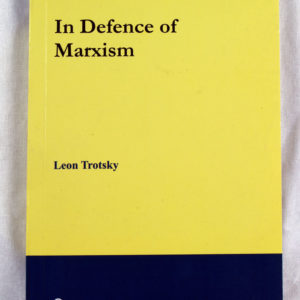Kingdom’s End: Selected Stories | Saadat Hasan Manto
₨ 638.40
This collection brings together some of Manto’s finest stories, ranging from his chilling recounting of the horrors of Partition to his portrayal of the underworld. Writing with great feeling and empathy about the fallen and the rejects of society, Manto the supreme humanist shows how the essential goodness of people does not die even in the face of unimaginable suffering. Powerful and deeply moving, these stories remain as relevant today as they were first published more than half a century ago.
- Categories: Books, Fiction
- Tags: Kingdom's End: Selected Stories, Leftshop, leftshopnepal, radical readings, rare books, rare readings, red books, Saadat Hasan Manto
The most widely read and the most translated writer in Urdu. Saadat Hasan Manto (1912-1955) is also the most controversial: he was tried for obscenity no less than six times, both before and after the departure of the British from India in 1947. In a writing career spanning over two decades, Manto, one of Urdu’s great stylists, produced a powerful and original body of work including short stories, a novel, radio plays, essays and film scripts.
This collection brings together some of Manto’s finest stories, ranging from his chilling recounting of the horrors of Partition to his portrayal of the underworld. Writing with great feeling and empathy about the fallen and the rejects of society, Manto the supreme humanist shows how the essential goodness of people does not die even in the face of unimaginable suffering. Powerful and deeply moving, these stories remain as relevant today as they were first published more than half a century ago.
Related products
Arrow of God is a 1964 novel by Chinua Achebe, his third. It followed his book Things Fall Apart. These two works, along with the third book, No Longer at Ease, are sometimes called The African Trilogy, as they share similar settings and themes. The novel centers on Ezeulu, the chief priest of several Igbo villages in Colonial Nigeria, who confronts colonial powers and Christian missionaries in the 1920s. The novel was published as part of the influential Heinemann African Writers Series.
The phrase “Arrow of God” is drawn from an Igbo proverb in which a person, or sometimes an event, is said to represent the will of God. Arrow of God won the first ever Jock Campbell/New Statesman Prize for African writing.
Trotsky’s theory of the permanent revolution is one of the most important additions to the arsenal of marxism. It was first developed by Trotsky in 1904, on the eve of the first Russian Revolution. At that time, all the tendencies of the Russian Social Democracy had the perspective of a bourgeois democratic revolution. Trotsky alone in 1905 put forward the idea that the Russian working class could come to power before the workers of Western Europe. The correctness of Trotsky’s theory was brilliantly demonstrated in 1917, when the Bolshevik Party under Lenin and Trotsky led the Russian proletariat to power in the first workers state in the world.
However, after the death of Lenin in 1924, the theory of the permanent revolution was subject to a vitriolic onslaught by the stalinist bureaucracy, which had in effect renounced world revolution in favour of “socialism in one country”. The attack on the theory came to epitomise the struggle against “Trotskyism”. Today, however, with the collapse of Stalinism (and with it “socialism in one country”), Trotsky’s theory of the permanent revolution has become more relevant than ever.
Publisher : Aakar Publications
Georgy Valentinovich Plekhanov, 1857–1918, a Russian revolutionary and founder of Marxism in Russia and known as the “Father of Russian Marxism.” His best works in the fields of history, philosophy, aesthetics, social and politics, especially the philosophy of historical materialism, were contributions that very valuable for the development of scientific thought and progressive culture.
Publisher: Aakar Books (1869)
This book is correctly regarded as one of Trotsky’s finest classics. It is a product of a sharp polemic within the American trotskyist movement during the period 1939-40. This was a dispute which touched on the very fundamentals of Marxism. It was for this reason that Trotsky himself participated in this struggle in the form of a series of articles and letters that are brought together in this volume.
Publisher : Aakar Publications






Reviews
There are no reviews yet.